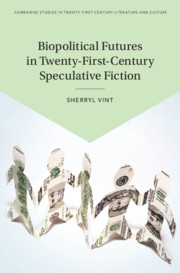Examining the rise and fall of a public–private marine biotechnological enterprise in Hawaii, this article analyses how promises to make products and profits from marine microbes in archipelagic waters drew upon peculiarly American sentiments about the sea as a politically uncontested treasure-chest of biodiversity. I argue that attention to the material process by which lab and legal instruments are calibrated to one another to generate biotech exchange-value must be joined by consideration of how scientists and their interlocutors imagine the meaning of biology—as discipline and as corporeal substance and process. Without such symbolic analysis, theorizations of biocapital remain incomplete. To discuss the genre of capitalism evidenced in marine biotechnological endeavors in Hawaii, I develop the concept of blue-green capitalism, where blue stands for a vision of the freedom of the open ocean and for speculative sky-high promise, and green for belief in ecological sustainability as well as biological fecundity. I show that this vision, dominant in industry–university settings, ran into direct conflict with Native Hawaiian legal epistemologies of the sea.


